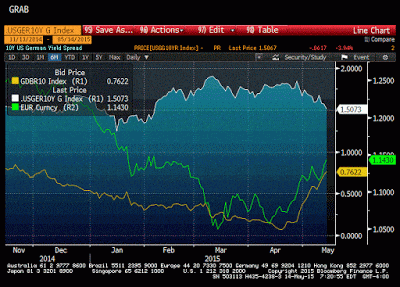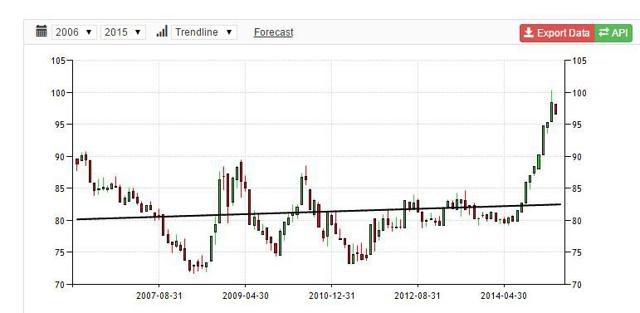How Does U.S. Economic Growth and Bund Yields Lift the Euro?
There are two separate but related developments lifting the euro to its best level in three-months against the US dollar.
First, the US economy is off to a disappointing start to Q2 after it appears to have contracted by around 1% annualized pace in Q1. The strong bounce back after the contraction in Q1 14 has thus far not materialized.





